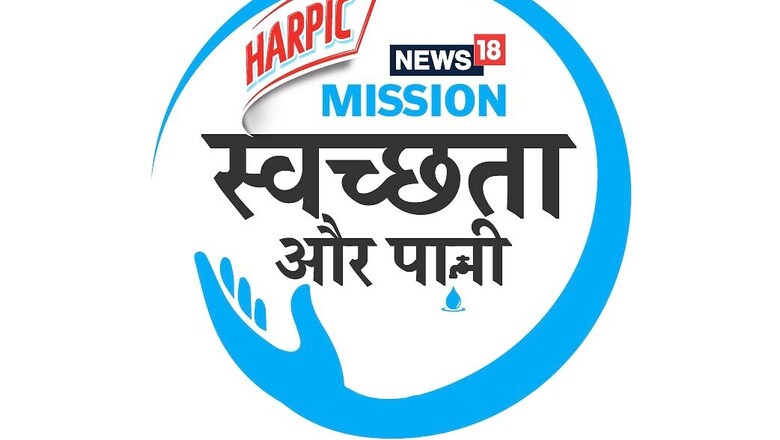
views
In India, we can’t talk about health, without also talking of toilet hygiene and sanitation. India’s Swachh Bharat Mission made headlines the world over, and is considered the world’s largest sanitation programme to date. The GoI constructed millions of toilets, eliminating several problems at once. Today, every Indian has access to a toilet. However, as the Sub-Group of Chief Ministers on Swachh Bharat Abhiyaan found, access alone doesn’t create a culture that embraces new habits.
A change of mindset is needed. Harpic, as India’s leading lavatory care brand, has been at the forefront of this conversation. Over the years, Harpic has created several thought provoking campaigns and initiatives with an aim to educate the common man on the need for good toilet hygiene habits in particular, and sanitation overall.
One of the most effective ways that Harpic is leading this conversation is in conjunction with the News18 Network, through the Mission Swachhta aur Paani initiative. It is a movement that upholds the cause of inclusive sanitation where everyone has access to clean toilets. Mission Swachhta aur Paani advocates equality for all genders, abilities, castes and classes and strongly believes that clean toilets are a shared responsibility.
On the occasion of World Health Day, Harpic and News18 Network hosted an exciting event to drive behavioural change on toilet use and sanitation as a part of the larger Mission Swachhta aur Paani initiative. The event featured a keynote address by Reckitt leadership, interactive Q&A sessions, and panel discussions. The speakers included Union Minister of Health & Family Welfare, Mansukh Mandaviya, Deputy CM of Uttar Pradesh, Brajesh Pathak, Director of External Affairs & Partnerships, SOA, Reckitt, Ravi Bhatnagar, UP Governor Anandiben Patel, actors Shilpa Shetty and Kajal Aggarwal, Regional Marketing Director of Hygiene, Reckitt South Asia, Saurabh Jain, sportsperson Sania Mirza and Padma Shri S. Damodaran, Founder of Gramalaya, among others. The event also featured on-ground activations in Varanasi, including a visit to a Primary School in Naruar and a ‘Chaupal’ interaction with sanitation heroes and volunteers.
Why sanitation is a national imperative
Shri Mansukh Mandavya, Union Minister of Health & Family Welfare, believes that when it comes to health, everything is interconnected. “Our homes, surroundings, the water we consume, and the food we eat must be hygienic, and our bodies must be strong enough to fight off infections. This is why preventive health is crucial.” He spoke about the various initiatives the GoI is undertaking to bridge the gaps in our healthcare system, and stressed the need for each of us to partner with the government to do our part.
“If we want to become a developed nation, we must first become a healthy nation. Strong nations are built on healthy people, healthy communities, and healthy societies. I strongly believe that good sanitation isn’t just my goal or your goal, it’s a goal we all share, and one that we will all benefit from. I invite every Indian to partner with us on this mission.”
In a special address by Aanandiben Patel, Governor of UP, she said, “Keeping our surroundings and environment clean is a collective responsibility, and I applaud Harpic and NW18 for their mission on sanitation literacy, as it is essential for bringing about behavioural change. Mission Swachhta aur Paani’s campaign slogan, ‘Healthy Hum, Jab Saaf Rakhein Toilet Har dum,’ is very apt. Let’s join the Mission Swachhta aur Paani movement and together create a Swastha and Swachh Bharat.”
Children, as champions of change
As a part of the World Health Day event, well known actor and celebrity mom Shilpa Shetty visited the Primary School Naruar in Varanasi, to talk to children about good toilet habits, hygiene and its link to good health. She also spoke about the need for breaking the taboos around talking about toilet hygiene in general, and menstrual hygiene in particular. “It’s a natural progression here. I’ve already educated my 11 year old son about this, because he needs to understand how to be sensitive to his friends who will soon begin menstruating. How teachers and parents talk about menstruation matters, because these are the attitudes children also inherit.”
Actor Kajal Aggarwal, whose son is just 11 months old, also talked about the need to start children off early. Her son is already learning to sit on a potty seat, wash his hands, and follow a routine. “Children learn by observing their parents, so it’s crucial to keep our homes and surroundings clean. By doing so, we can set an example for our children and help keep our country clean.”
We’re all witnessing the change in real time
Sania Mirza recounted her experiences when as a young athlete, she often travelled to tournaments in different states. Toilets at train stations and in trains were often unusable and in some places, unavailable altogether. “But today, we have toilets in different parts of the city, portable toilets, and there’s actually a thought process going on that this is important for the development of the country and for women to move forward. It’s very empowering to have access to clean toilets because it gives women confidence to go out without worrying about basic needs of sanitization and bathrooms. I see a huge difference.”
Padma Shri Usha Chaumar (Former sanitation worker, now President of Sulabh International Social Service Organisation), has witnessed this shift in attitudes firsthand, “I used to do this work before. The people whose homes I would go to had a bad attitude towards me. They did not let us sit close or come closer to them. But today, that has changed. Everyone wants toilets in their homes, and they should be clean. Now that there are toilets everywhere, see how our lives have changed. I did not even dream that I would be honoured with awards and be invited to such prestigious discussions.”
Sahil Talwar, Director, Jagran Pehel also chimed in with a similar sentiment, “Sanitation workers are the backbone of this system. Their dignity is the cornerstone of the success of the Swachh Bharat Mission and a cleaner society. We are empowering these people to empower ourselves, to solve our problems. It’s not just about getting them better jobs, it is, in fact, very self-serving.”
The Road Ahead
We still have a long way to go before toilet hygiene and good sanitation practices become second nature for all Indians. As the Swachhta ki Paathshaala teaches, apne peeche dekho: Are you leaving the toilet as clean as you found it? If each of us takes care of the next person in line, we all get to use a clean toilet.
As Ravi Bhatnagar, Director, External Affairs & Partnerships, SOA, Reckitt said so eloquently, “Sabka saath, sabka vikaas tabhi hoga, jab sabka prayaas bhi hoga.”
This is the mindset that we need to imbibe in ourselves and others. The speed at which we do so will determine how soon we achieve the dream of a Swasth Bharat, through a Swachh Bharat. Join us at Mission Swachhta aur Paani’s exclusive event to learn about the many ways in which you can partner with us to take this conversation, and this dream further.
Read all the Latest News here










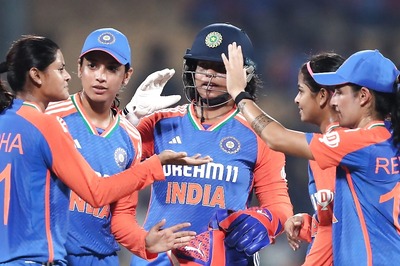

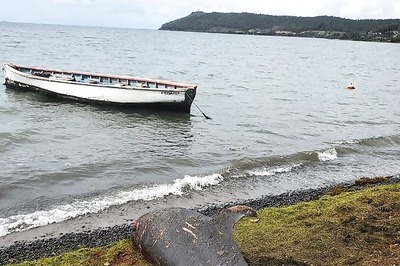

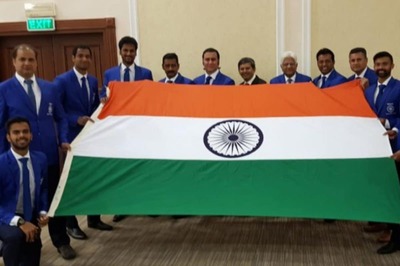
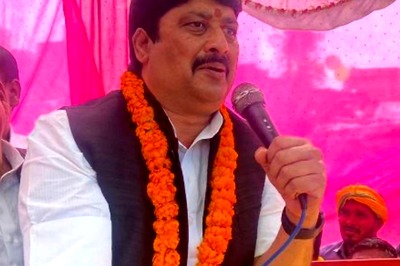




Comments
0 comment